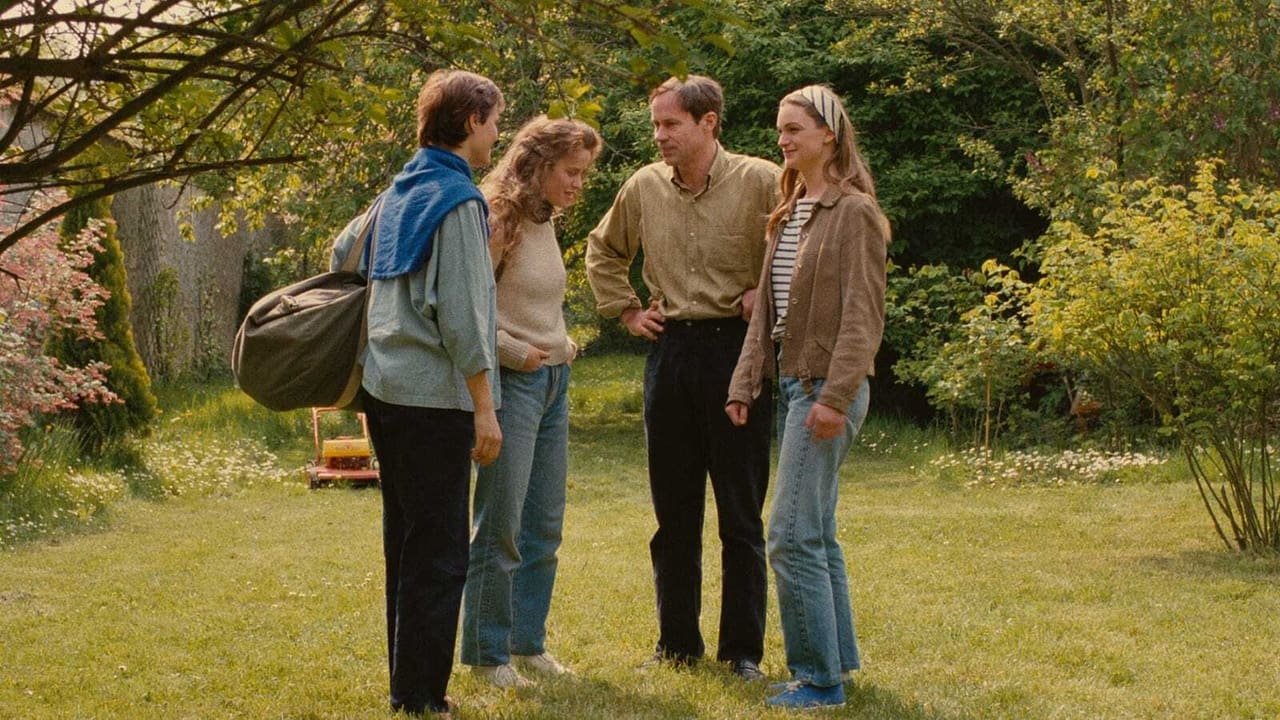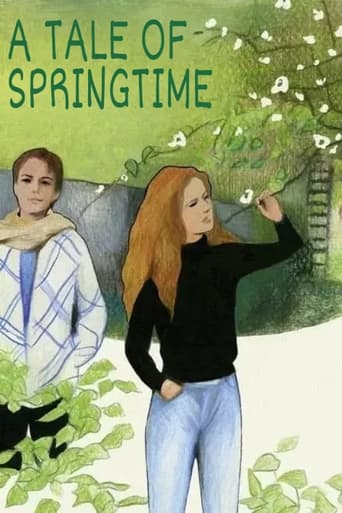



Very very predictable, including the post credit scene !!!
View MoreAlthough it has its amusing moments, in eneral the plot does not convince.
View MoreToo much about the plot just didn't add up, the writing was bad, some of the scenes were cringey and awkward,
View MoreExcellent and certainly provocative... If nothing else, the film is a real conversation starter.
View MoreWhen the story begins, Jeanne is at a party where she meets Natacha. They talk for a bit and Jeanne mentions how she is temporarily unable to use her apartment and she hates to stay at her boyfriend's place when he is away. Soon, Natacha asks Jeanne home and she agrees. The two seem to get along just fine, though as the story progresses, it seems that Natacha has some serious issues with women--in particular, he mother and her father's girlfriends (the parents are divorced). It also seems possible that Natacha has a plan--to try to get her new friend Jeanne and her father together.While I do not expect films to have happy endings, I do expect that by the end there would be some sense of resolution or at least an indication as to where the story would go. However, in "A Tale of Springtime", the film just seems to end--and this frustrated me to no end. This is because the film really had some fine acting, nice camera-work and the basic things needed for an interesting story...but then, nothing! It's a shame, as with a more well-defined ending, I would have scored this one a 7 or even 8. The basic story was very nice--it just seemed like when they ran out of film, they just ended the story! And, with several important points unresolved, it was a bad way to end it.
View MoreWe first see our protagonist, Jeanne, outside a modernist high school building whose name—"Lycée Jacques Brel"—suggests an institution devoted to the study of love and longing as well as the realms of higher thought. That's what Rohmer has in mind, of course. In an extended prologue, we learn that Jeanne is at loose ends; her fiancé's out of town, she's creeped out by his messy apartment when he's not there and she's lent her own place to a country cousin who needs to stay an extra week. Natacha, a music student she meets at a party, extends an invitation. No surprise that these attractive young women talk fluently and at length about their family histories, their habits and opinions; later on, when Natacha's father, Igor, and his younger girlfriend, Eve, join in, the talk becomes even more rarefied—a casual question about Jeanne's teaching methods turns into a brief refresher course on Kant's transcendental idealism. And as usual, this talk has an undertone of intrigue and seduction; Natacha has scouted her new friend as a possible replacement for Eve, whom she despises. It takes some maneuvering and a strategic tantrum to get Igor and Jeanne alone together in his secluded country house, but there's not much at stake emotionally for either of them and not much of a payoff for them or for us. Despite a promising start, I felt that the sly, noncommittal ending makes this one of Rohmer's less satisfying (as opposed to edifying) films. Apart from the better known titles with women's names in them (Claire, Maud, Chloë (aka "Love in the Afternoon"), Pauline), I'd also rate "The Aviator's Wife," "The Good Marriage" and "Boyfriends and Girlfriends" as well as the other seasonal tales ahead of this one.
View MoreIt may seem strange that with all the great Rohmer films to choose from, that this would be my favorite. After all, it is a slow moving film, with a threadbare plot, even by Rohmer standards, and yet completely enchants me. Jeanne, the main character, is an ordinary, middle-class woman, at the start of her career as a teacher, at the start of a relationship with Mathieu (whom we never see) still trying to figure her life out. She recognizes her own shortcomings, she thinks too much, she's not able to confide in others and she is sometimes too accommodating to people. Yet she is a noble character, with great integrity and kindness.There is a wonderful little scene in Natasha's apartment. Jeanne is grading papers in the dining room as Natasha comes home from school, and in the kitchen, the living and Natasha's bedroom are flowers Jeanne has bought to thank Natasha for her kindness. Natasha, in return, is so touched by Jeanne's act of kindness that she can barely contain herself. This one little scene shows so much. Jeanne's dedication as a teacher, her kindness to people, and flowers to herald in the first days of spring.As their situations develop, and really there is no reason to speak of the plot, there is a deepening bond as the viewer spends more time with the characters, in simple things, doing simple chores, cutting potatoes, folding clothes, listening to music, and paying attention to what is said, and not said, in their conversations, and at the end of the movie, you seem to have made some very good friends. It's a wonderful thing to be touched by art, but it is more wonderful, I think, to be touched by ordinary life and ordinary people. By not attempting to, Rohmer has made a masterpiece.
View MoreThe first in Eric Rohmer's Four Seasons series, A Tale In Springtime is the story of an introverted young girl (Florence Darel) just reaching adulthood who takes a liking to an older woman she meets at a party (Anne Teyssedre) and determines to match her off with her father (Hugues Quester), despite the latter's already having a lover of his own. There is a certain absurdity to this, apparent to both adults, who though both reluctantly attracted to each other resent Darel's attempts at matchmaking. Nevertheless, both of them are intelligent enough to understand that there is no 'proper' way to meet, and are alive to the possibilities that life brings them. Darel, for her part, is a persistent catalyst. As with all Rohmer films, the stage is set, in an age of increasing impermanence and uncertainty in human relationships, for a series of minimalist reflections on love and life.There is no sense of inevitability in this film; indeed it acknowledges throughout the unpredictable consequences of the choices we make in life. The implicit message of the film is that it is not so much the choices we make, but the cultivation of personal sensibility, awareness of others and honesty that will offer us the greatest chance of happiness. But then again nothing is certain! If, like me, you love Rohmer's films then you will adore the subtlety of this film and enjoy the challenge of absorbing the numerous philosophical reflections that are an essential part of it. The acting is good, and you care about what happens to all three protagonists, although not too much; their dilemmas are our dilemmas too, but whatever choices they make now, they will still be making choices for the rest of their lives.And that is as it should be.
View More